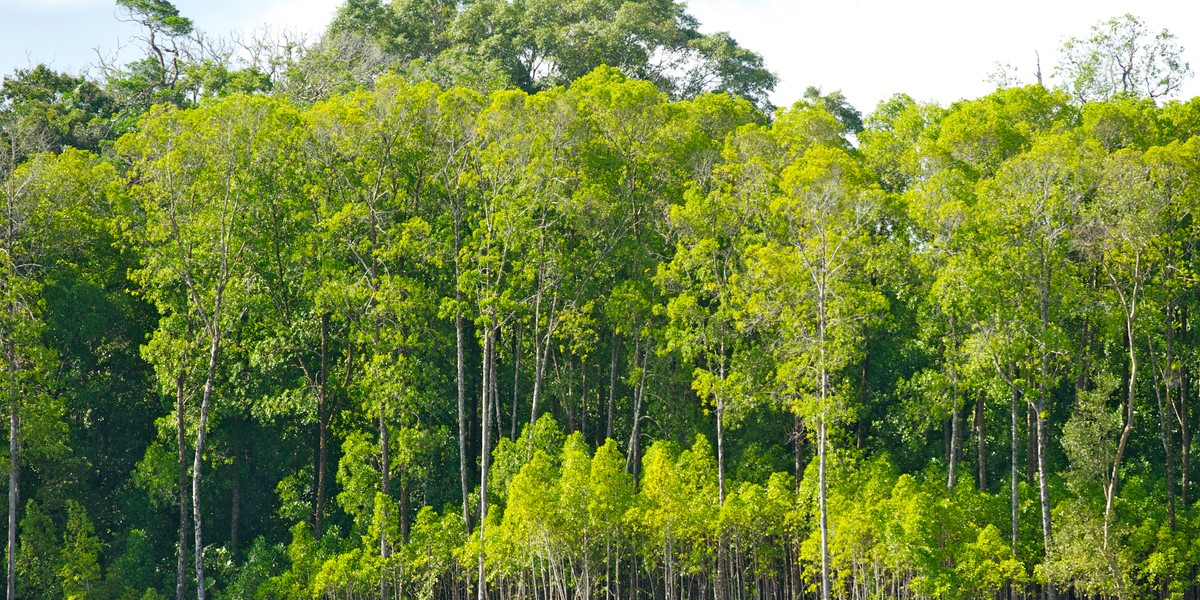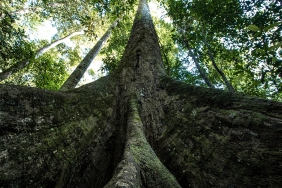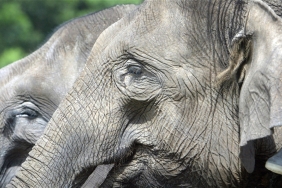MANGROVE FOREST CONSERVATION PROVIDES NUMEROUS BENEFITS FOR KARIMUNTING PEOPLE
Pontianak (29/04)-The community in Karimunting village, Sungai Raya Kepulauan Sub-district, Bengkayang District, West Kalimantan has started acknowledging the benefit of mangrove forest. Beside protecting vulnerable coastlines from wave action, mangrove also shields settlements during storms. Moreover, it also provides economic benefits to the coastal communities.
It was stated by Idham, a villager from Karimunting village during WWF-Marine Police Directorate of West Kalimantan Regional Police visit to southern coast of West Kalimantan. “Mangrove planting has given many advantages to the coastal community,” he said in Karimunting, on Friday (27/04).
The villagers are now much more serene, he added, since the existence of mangrove has protected their houses from storm. Other advantage is, when the sea level rises, they can harvest “tengkuyung” (Snail Cerithidea rhizophorarum) in a huge amount. They can harvest from 2-3 kg per day. The sea snails have the tree climbing behavior, they tend to climb up the mangrove stem.
In addition to that, WWF-Indonesia Paloh Site Coordinator Dwi Suprapti highlighted other advantages from mangrove forest. It ensures the balance of coastline, retards coastal erosion and protects the coast from storm. Its root system also works much protecting the land from abrasion as well as hold the mud-flats.
“Mangrove forest enables the forming of land and serves as buffer zone. It also plays a significant role in absorbing its surrounding sea waters and transforming it fresh water as well as neutralizing toxic waste, absorbing carbon, and producing oxygen,” she added.
Furthermore, she underlined mangrove's biological function. Planktons and other bacterial organisms get advantage from rich nutrient as the consequence of decayed litters from the trees or entrapped sediment from the surrounding waters. It also serves as as the nourishing ground providing still and safe environment for larvae and juveniles of crustacean and other associated organisms, or even birds and other species to grow their early stages.
Meanwhile from the economy aspect, She said, mangrove forest provides timber and non-timber products; cordwood, food sources, wood crafts, medicine as well as mangrove-based ecotourism.
“Since 2009, in a collaboration with Marine Police Directorate of West Kalimantan Regional Police, other NGOs, and the local communities, WWF has been conducting mangrove planting in Karimunting coast. The program was surprisingly successful. Nearly 100 % of all planted mangrove grow well. Some trees have reached a height of 4-5 metres,” she emphasized.
Mangrove planting program was initiated due to the concern from various parties regarding the devastating logging activities in Batu Ampar, Kubu Raya District.
Director General of Marine Police Directorate of West Kalimantan Regional Police, Kombes Sukandar said, the local community took advantage from the logging activities in the area, providing them with cardwood. In addition to that, the formal regulation, The Code of Criminal Procedure Law or forestry law regulating those destructive practices has still not been established yet. Thus, his institution has initiated a collaborative work to protect mangrove forest.
“The Marine Police in West Kalimantan, WWF-Indonesia, and the local communities have been working together to protect mangrove forest in this area. After 2 years since we started the program, mangrove growth in Karimunting has performed fast. The vegetation works well protecting the land from abration as well as provides economy benefits for the community,” he said.
WWF-Indonesia West Kalimantan Program Manager M.Hermayani Putera highlighted, the mangrove conservation effort is part of WWF’s strategis in West Kalimantan to support collaborative protection and management for the very important green belt of the island. “Administratively, the green belt of the island is located in various districts, from Sambas to Ketapang, engaging law enforcement entities for instance police and The Indonesian Navy, as well as private sectors, NGOs, and local communities, “he said.
Putera explained, survey and monitoring activities have been undertaken to articulate joint commitment between The Marine Police Department of West Kalimantan Regional Police and WWF in a collaborative work to manage the green belt of the province. “We expect, in the context of climate change mitigation strategies, mangrove conservation can retard abration and other nature disasters in some major points in southern road path due to very high wave, he stated.





